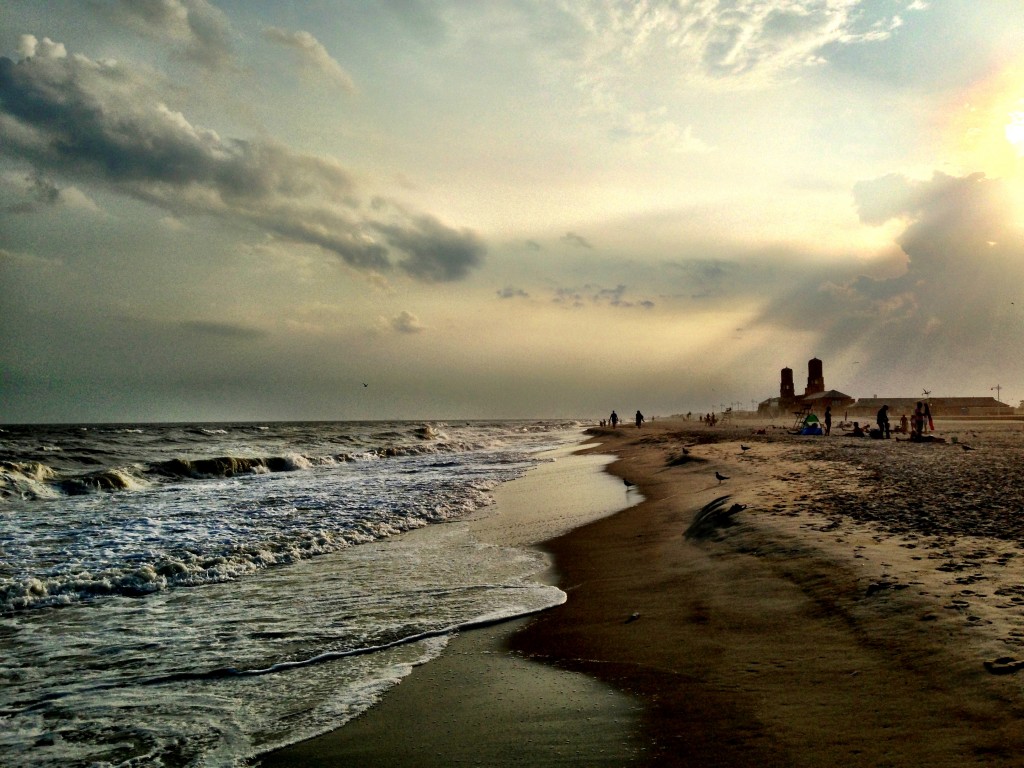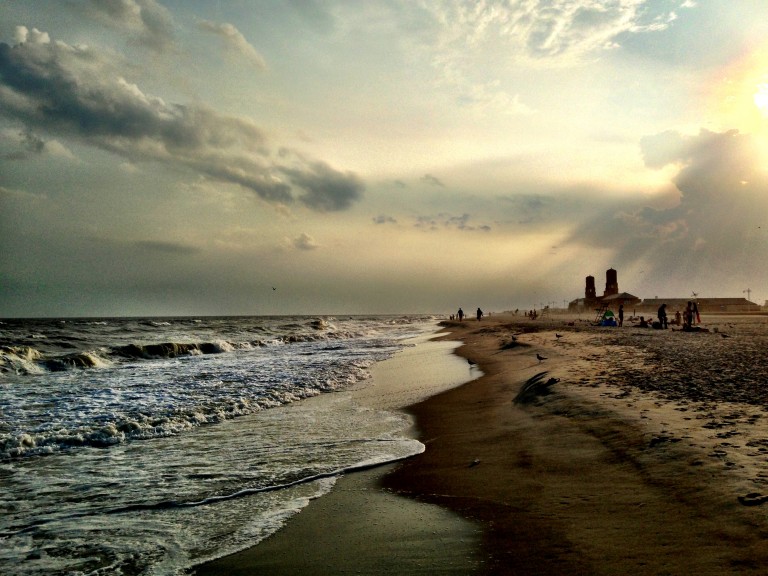
Congress is slated to soon vote on a plan to build a natural gas pipeline under Jamaica Bay and Jacob Riis Park to a gas metering station in Floyd Bennett Field. Photo courtesy David Shankbone/Wikimedia
Will the Rockaway Natural Gas Pipeline, also known as the Rockaway Lateral Pipeline, be a friend of the people or an environmental mistake which generations of Rockaway residents will live to regret?
The answers really depend on who you ask.
National Grid and Williams Transco, an Oklahoma-based energy company, the companies building the $265 million pipeline, say it will be an economic boon and provide needed and stable supplies of natural gas for Rockaway and the rest of the city.
National Grid’s section of the pipeline was laid last summer beneath Flatbush Avenue from Kings Plaza Shopping Center to the Memorial Parkway-Gil Hodges Memorial Bridge where the pipeline enters the Rockaway Inlet, near the Jamaica Bay Wildlife Refuge and then stretches to the Rockaways.
Williams’ portion of the pipeline, still awaiting final approval by the Federal Energy Regulatory Commission, or FERC, would be a three-mile section that would connect the Rockaways to an existing natural gas line in the ocean that runs parallel to the Rockaways.
The section will run under a golf course in Jacob Riis Park inside the Gateway National Recreation Area.
Williams also plans to turn an unused hangar on Floyd Bennett Field, in Brooklyn, into a meter station.
Area politicians, while wary of safety and environmental concerns, nevertheless have said they understand the need for the pipeline to better serve an increased demand for natural gas in the city.
Assemblyman Phil Goldfeder (D-Rockaway Park), has said that while he is not in favor of hydraulic fracturing, the controversial process of extracting natural gas from rock by shooting highly pressurized water and chemicals into the earth, he is not opposed to the use of natural gas.
“My opposition to fracking doesn’t necessarily also apply to natural gas,” Goldfeder said. “At this point, it’s one of cleanest energy sources we have.”
Regarding the pipeline, Goldfeder explained that a major problem now is that the city’s natural gas needs are currently serviced through Nassau County, by way of a line that runs into the Atlantic Ocean, through Nassau County and then into Queens – via Rockaway’s western end – and then back into the city.
Goldfeder said there are capacity problems that could be alleviated via this new pipeline.
“New York State has plenty of natural gas but not capacity,” he said. “The pipeline would create the increased capacity to service NYC with natural gas.”
Moreover, Goldfeder pointed out that majority of opposition to the pipeline seemed to be coming from groups outside the Rockaway community.
“Most Rockaway residents agree that we need the increased capacity for natural gas.”
He added that those who oppose the pipeline have generalized opposition to the use of natural gas and want the country to move in other energy directions such as solar and wind.
Opponents to natural gas “think we can do better than natural gas for a clean energy source,” Goldfeder said.
Indeed, one major opponent of the Rockaway Pipeline is a group that calls itself the Coalition Against the Rockaway Pipeline (CARP). The group, which opposes the pipeline for numerous reasons, cites safety and environmental concerns among its chief objections to the completion of the project. The coalition said that it had collected more than 5,000 signatures, objecting to the pipeline.
“The use of our national park for the purpose of serving the fossil fuel industry’s ends, contrary to the laws and policies of the National Park Service, is abhorrent,” said JK Canepa, a CARP spokesperson, referring to part of the pipeline’s path beneath Jacob Riis Park and the Jamaica Bay Wildlife Refuge.
“Pipelines are dangerous; they almost always leak and all too often they explode. The company that intends to build this one, Williams Transco, has such a terrible safety record that only a few years ago Canada named them as the worst pipeline company in the country,” Canepa explained. ‘
She added that pipeline inspections are required only once every 7 years in this country and that CARP has “grave concerns” about the installation of a 26-inch high-pressure pipeline under the sand of Riis Park where only a year and a half ago, Hurricane Sandy brought so much destruction to the area.
Chris Stockton, a spokesman for Williams, said that with regards to safety, the “Transco pipeline has safely served NYC for more than 60 years without incident…We safely and reliably provide about 50 percent of the natural gas used by the city.”
He added that, “Safety is the most important aspect of our operations and our goal is zero incidents. When an incident does take place, whether it is on our pipeline or another part of our company, we conduct a very exhaustive analysis to determine how it took place, then we look at modifying our procedures to see if we can prevent a similar accident from happening in the future.”
Stockton pointed to the company’s “comprehensive pipeline integrity management program, which includes monitoring of the pipe 24 hours a day, seven days a week.”
Further, he said that William’s integrity management program exceeds federal industry guidelines and that in the past 20 years, the number of serious incidents on transmission pipelines in the U.S. have dropped 50 percent.
Dan Mundy, Jr., president of Broad Channel Civic and member of environmental group Jamaica Bay Ecowatchers, said that his position on the pipeline is that he’s “leaving it up to the state,” to either approve or deny the project’s completion.
Mundy and others from local environmental groups have mandated that in order for the pipeline project to go forward, Williams must spend a “significant” amount of money to replenish the Rockaway artificial reef, which had been at one time teeming with marine life and has since deteriorated.
He also explained that they are demanding that Williams take on a future bay/wetlands project. “There’s no way a multi-billion dollar company should be allowed to come in, leave an environmental footprint in the area, and then give nothing back in return,” Mundy said.
Both of those requests, Mundy said, should be part of the state’s mandate when it comes time to issue permits.
State Sen. Joe Addabbo, Jr., whose district includes parts of the Rockaways, said that while he too has some safety and environmental concerns about the pipeline, he also acknowledges the project’s need.
“The project is moving forward and it will provide the western end of the Rockaways with needed natural gas,” Addabbo Jr., said. “The Rockaways is such an isolated area, it’s not easy to supply it with utilities.”
For CARP’s part, the group has said it will continue to fight against fracking and the pipeline.
“We await the final decision by FERC on the fate of the Rockaway Lateral Pipeline, and we do not intend to drop the matter, whatever the outcome,” Canepa said. “There are communities in the line of fire of pipelines everywhere and a movement is building to halt the progression of this deadly trend.”
By Alan Krawitz

